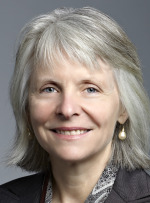Connecticut becoming hotbed for bioscience growth
Ranking fourth in the nation for bioscience-related patents, Connecticut boasts a high concentration of researchers who spin out of its universities and a cluster of multinational biotechnology and pharmaceutical companies such as Boehringer Ingelheim in Danbury and Purdue Pharma in Stamford.
The state also provides loans for entrepreneurs and established companies looking to commercialize bioscience products within its borders at a time when the National Institutes of Health has been pulling back on research grants.
Recently, the state became the landing spot for one of the nation”™s oldest hospitals: Mount Sinai, which has its headquarters in Manhattan. The Icahn School of Medicine at Mount Sinai announced plans to expand its genomics facility to Branford to leverage the research expertise of renowned scientists and capitalize on an attractive laboratory space, which was home to 454 Life Sciences, a DNA sequencing-machine company. The Department of Economic and Community Development (DECD) provided a $9.5 million subsidized loan to cover expansion costs. If the institute creates 142 full-time jobs within the next five years, $7.25 million of the loan will be forgiven. The facility has hired 10 people and will recruit 10 more by its December opening.
“We”™ve outgrown our space in New York, and our genetics department looked in Yonkers, New Jersey, the five boroughs and Connecticut,” said Dr. Andrew Kasarskis, co-director of the Icahn Institute for Genomics and Multiscale Biology. “Overall, the best place was Connecticut for a number of reasons. One, there is a substantive biotech area around New Haven and Branford, and two, Connecticut is where two revolutionary DNA sequencing technologies were developed. The infrastructure, type of lab work and access to a well-trained, innovative and effective biotech workforce drew us to Connecticut.”
The presence of a multimillion-dollar genomics lab creates a ripple effect of economic growth and opportunities in bioscience throughout the rest of the state, Kasarskis said.
With the space to experiment and run clinical studies for cancer and other diseases, Mount Sinai”™s medical school is interested in placing biogenetic professionals throughout the state that can bring innovative technologies and developments to the market and provide impactful patient care, according to Kasarskis. Every company in the rest of the state that provides medication to patients will benefit from Mount Sinai”™s research laboratory, he said.
When DECD Commissioner Catherine Smith first came into office, she called bioscience the state”™s “sweet spot.” And the state”™s annual growth of bioscience is expected to exceed 10 percent, she said recently. Given the demand in personalized medication, new drug therapies and changes and advancements in genome sequencing, Smith began to see the value of generating a bioscience fund.
“If we look at Fairfield County as a whole and how we can generate more activity in bioscience, we see that the county has smaller companies that do bits and pieces of bioscience or medical device type of work that are in the same league as our aerospace manufacturers in terms of precisions, automations and additive manufacturing,” Smith said. “I could see Fairfield County providing manufacturing plants when products are commercialized.”
Through the joint effort of the DECD and Connecticut Innovations, a quasi-public agency, Connecticut has become home to myriad venture capitalists that are invested in biotechnology research and innovations. Connecticut Innovation”™s Bioscience Connecticut Fund has made a 10-year commitment to invest $250 million in risk capital for techniques and products, especially in bioscience.
Connecticut Innovations is also investing $25 million a year until 2016 for pre-seed financing, which provides capital and support services for science-and-technology-related concepts, according to the state”™s job creation bill passed in 2011.
“We try to leverage our funding through the DECD and CI with private sector funding to give bioscience companies a good start,” Smith said. “The goal is once companies get to a certain level, they can start relying on venture capital or private equity firms or go public and get capital from the market.”
Susan Froshauer, president and CEO of CURE, Connecticut”™s bioscience cluster, said one of the ways she supports startup companies is by providing a network of funding opportunities. She said one of the biggest hurdles for a bioscience company is getting the initial funding to develop its design and concept. Calling it the “valley of death,” many bioscience companies face an uphill battle when it comes to investors putting confidence in an idea.
“I”™ve been part of a team of bioscience experts who are available to review small companies”™ business plans and help them make their business ideas solid, so that these companies can be funded,” Froshauer said. “An idea can take 15 years and billions of dollars to become a reality, so a sustained commitment to this bioscience ecosystem is what Connecticut needs to have.”


